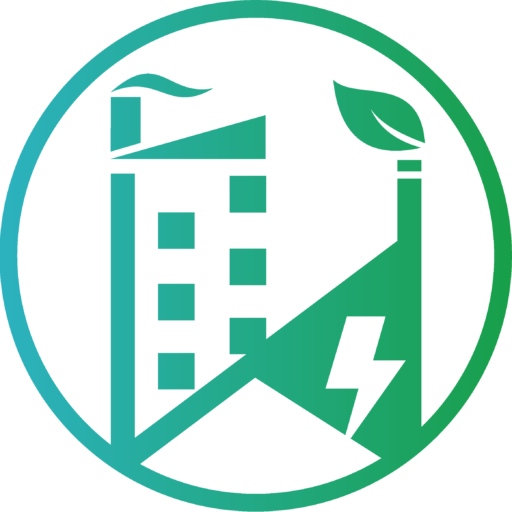Centre for Research and Technology Hellas, Greece (CERTH)
The Centre for Research and Technology Hellas, Greece (CERTH) is the largest research centre in Northern Greece and was founded in March 2000. CERTH is a non-profit organization that directly reports to the General Secretariat for Research and Technology (GSRT), of the Greek Ministry of Development. The mission of CERTH is to carry out fundamental and applied research with emphasis on the development of novel products and services of industrial, economic and social importance in the fields of Chemical and Biochemical Processes and Advanced Functional Material, Environmental Friendly Technologies for Solid Fuels and Alternative Energy Sources, etc. CERTH has participated successfully in more than 1.000 competitive research projects financed by the European Union (EU), leading worldwide industries and the Greek Government via the General Secretariat of Research and Technology (GSRT).
The Chemical Process & Energy Resources Institute (CPERI) operates at CERTH and is the main Greek organisation for the promotion of research and technological development aiming at the improved and integrated exploitation of all types of fuels and their by-products. Relevant to WINTER EU projects undertaken by CERTH are “Scrutinizing the Impact of CCS Communication on the General and Local Public (CCS Communication)”, “Research and CSO Dialogue towards a low-carbon society (R&Dialogue), CoalTech2051 , “Re-purposing coal power plants during energy transition (RECPP)” and “Synergistic POTENTIALS of end-of-life coal mines and coal-fired power plants, along with closely related neighbouring industries: update and re-adoption of territorial just transition plans”(POTENTIALS).
Technische Hochschule Goerg Agricola University (DMT-THGA)
The Technische Hochschule Goerg Agricola University (DMT-THGA) is part of the DMT LB GmbH – a non-profit organisation for education and culture – and was founded in 1816 as a school of mining. Since then it focuses on the education and training of mine workers and mine managers. With the decision of the German government in 2007 to phase out the coal mining activities in Germany, the university decided to focus on mine closure and post-mining. In 2015, the Research Institute of Post-Mining was established. Research is carried out in 4 areas: (1) “Mine water management”; (2) “Geomonitoring in Post-Mining”; (3) “Material sciences for industrial heritage” and (4) “Reactivation and Transition”.
The political and legal framework is the base for a just transition and a successful reactivation of infrastructures, areas, dumps and other coal mining legacies. In order to shape the structural change in the coal mining areas in NorthRhine-Westphalia, Germany and other European countries, appropriate government and management processes for stakeholders on regional level have to be established and be integrated into the processes of the development of areas and reutilisation to create new and green jobs. This is the topic of the research area “Reactivation and Transition”. Prof. van de Loo and his team are analysing the various political and legal frameworks in these regions, investigating “good governance” practices, developing “lessons learned” by comparing governmental organisations and rules to shape and monitor mine closures and post-mining activities. These results can be transferred to other
Poltegor-Instytut Institute of Opencast Mining (POLTEGOR)
Poltegor-Instytut Institute of Opencast Mining (POLTEGOR) is a research organization with over 70 years of experience. Poltegor is a leading research and development organization in the area of opencast mining in Poland. The main aim of a research team is to create and implement within the mining industry new, innovative, clean and environmentally friendly technologies for exploitation and reclamation. Poltegor has a wide-ranging experience in realisation and management of different types of research and development projects. In recent years, Poltegor took part as a leader or a project partner in several projects realized in the frame of the RFCS, Interreg Central Europe and national schemes. In 2018, Poltegor finalized realisation of the RFCS project called BEWEXMIN as a lead partner. Currently, Poltegor leads the RAFF project and is involved in three other RFCS projects as a project partner. Coordination of the RAFF project is a particularly valuable research experience in terms of coal mines in the process of closure and post-mining areas in the process of transition to green economy. Innovative outcomes of the project will contribute to methodologies and guidelines to improve the safety, security, and environmental aspects of the flooded open pit coal mines and created water reservoirs.
The Institute employs almost 60 people, including researchers, research and technical employees and engineering and technical employees, who work under 6 departments and 10 laboratories. Poltegor has well-experienced engineering staff with more than twenty years of experience in geological, geotechnical and environmental research. The staff are experts in the field of both mining and reclamation. Poltegor-Institute cooperates with several opencast mines in Poland and Europe. The institute is also active in the issue of renewable energy sources and energy efficiency. Poltegor was recently involved in two Interreg Central Europe projects focused on waste heat utilization and on dynamic lighting implementation in municipalities. Currently, in the frame of the RFCS SUMAD project the institute seeks for safe and feasible possibilities of constructing large-scale renewable energy installations within the spoils dumps across Europe which due to heterogeneity and variability present in the spoil materials may pose a certain risk to the erected structures. The SUMAD project aims at determining ways to optimize the use of mining spoil dumps for construction purposes.

